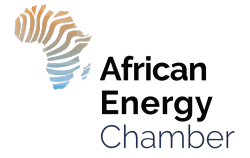The African Energy Chamber (AEC) Urges African Union (AU) and the Africa Climate Summit to Prioritize Labeling Natural Gas and Nuclear as Green Energy/Renewable

JOHANNESBURG, South Africa, September 6, 2023/ -- Representing the voice of the African energy sector, the African Energy Chamber (AEC) (http://www.EnergyChamber.org) has long-been a fierce advocate for the role oil and gas plays in Africa. While climate activists have dubbed these resources as ‘dirty’, oil and gas stand to significantly advance energy security across the continent, increasing access to electricity, fueling industrialization and opening up economic opportunities for millions continent-wide. The AEC calls on the African Union (AU) to align policies with demand, embracing gas and nuclear energy as green solutions, as the European Union (EU) has for its own continent.
Last year, the EU made a decision, supported by the European parliament in July 2022, to label natural gas and nuclear energy as ‘green.’ The move essentially gave foreign investors and project developers the greenlight – excuse the pun – to fund and develop such projects. However, following the advent of the policy, it was clear that the EU’s recognition of gas as green was only directed at Europe, and that African gas resources were to remain ‘dirty.’ At a time when the international community continues to villainize African gas, the AEC calls on the AU to implement its own gas and nuclear-friendly policies.
Currently, over 600 million people are without access to electricity in Africa while 900 million are without access to clean cooking solutions. At the same time, the continent has one of the youngest and fastest-growing populations. As demand for energy grows, Africa’s gas resources stand to fuel the economy. The continent’s proven gas resources are measured at 620 trillion cubic feet, most of which remain undeveloped. Lack of investment in the gas industry has largely restricted monetization, despite the potential of the resource to alleviate energy poverty. Domestic gas utilization is also still in its infancy stage, with the majority of Liquefied Natural Gas (LNG) exported to European markets. While the AU has put in place policies such as the African Continental Free Trade Agreement (AfCFTA), intra-African trade cannot be fully implemented if gas is not identified as a green energy source.
To alleviate energy poverty and bolster industrialization, Africa requires substantial investments to be made in pipeline, power infrastructure, LNG terminals and applications. An AU-led ‘gas is green’ policy will galvanize financing for the continent’s gas projects while kickstarting the development of small- and large-scale LNG and power generation facilities. And the timing could not be more important. Sizeable oil and gas discoveries continue to be made across the continent. Namibia, for example, made five hydrocarbon finds in 2022 and 2023 while major projects have or are poised to come online in Senegal and Mauritania (Greater Tortue Ahmeyim); Mozambique (Coral Sul); Nigeria (Nigeria LNG); and many more countries. While the AfCFTA has essentially removed barriers to trade and market entry, unless supported by an AU-led ‘gas is green’ policy for Africa, the benefits of the continent’s resources as well as its trade structures will not be realized.
This week, the AU’s Inter-Institutional Coordination Meeting for the Implementation and Domestication of the African Commodity Strategy will take place in Addis Ababa. The meeting, held under the theme, ‘Commodity-led Industrialization for One African Market,’ falls under the flagship project of the AU’s Agenda 2063, ‘The African Commodity Strategy,’ which aims to develop Africa’s commodities as a driver of structural, social and economic transformation. Central to these commodities should be gas, the products of which have the potential to drastically change the socioeconomic landscape in Africa. For a continent that produces less than 2% of global greenhouse gas emissions, it is unjust for the AU to sit by and allow this product to not be used while the same resource continues to drive development and improve the standard of living in Europe.
“The AU should not villainize the very resources that offer the continent the chance to industrialize, electrify and grow, but rather, should provide the regulatory tools that enable the trade of gas-based products on a continental basis. Africa has abundant natural gas resources: a sustainable energy solution lying in arms reach of many countries continent-wide. Developing these resources is no longer simply an exciting or challenging investment opportunity, but rather, investing in gas and nuclear has become one of the only ways Africa will industrialize and make energy poverty history,” states Ayuk.
Gas and nuclear energy can undeniably act as a pivotal lifeline for numerous African nations. By mirroring the policies of the EU, the AU could set the stage for a substantial influx of foreign investment, which, in turn, could serve as a catalyst for propelling commodity-driven and gas-centric industrialization efforts across the African continent. Africans deserve to have the same advantage as European have. By implementing a ‘gas is green’ policy for Africa, the AU stands to usher in a new era of investment and development in Africa, while spearheading a just and inclusive energy transition.

